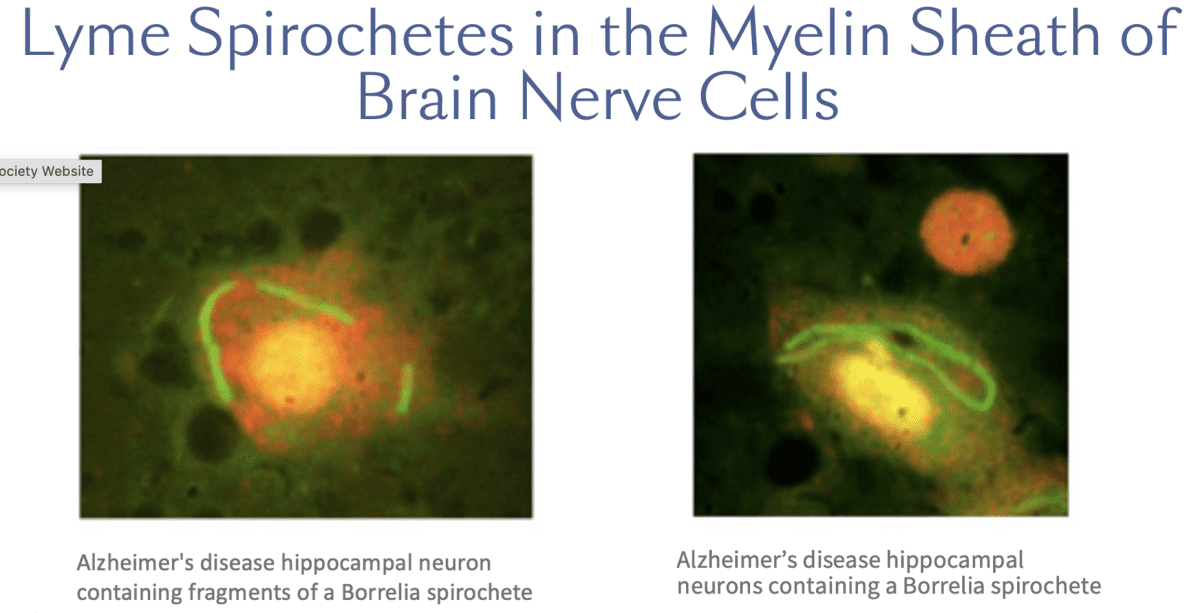
Does the immune system turn against the body in autoimmune disease? This post discusses how different parasites can infect human cells and cause what might appear to be autoimmunity but in fact, it is just the immune system dealing with parasites near or within human cells. And when parasites are treated effectively, the so-called “autoimmune response” vanishes.
Autoimmune is defined as a condition where the body’s immune system mistakes its own healthy tissues as foreign and attacks them.
Autoimmune diseases are inflammatory conditions that can affect many parts of the body and specific autoimmune diseases affect specific parts of the body.[i] The idea of autoimmunity wasn’t really popular before the early 1950s.
Inflammation is the immune system’s response to infection. The main job of the immune system is to defend us from infection. Therefore in chronic disease, inflammation is the result of infection.
Pathologist Dr. Alan MacDonald’s take on autoimmunity
“The autoimmune connection has been formulated by people that want to argue persuasively that the body has turned on itself. The immune system is not stupid. The immune system is not there to turn all of its furor against the cells you were born with. If the parasite penetrates a cell line (ex. kidneys, liver, etc.) and lives inside the cell as a parasite, the immune system will sense that there’s something wrong and attack those infected cells. This may seem like it’s autoimmune when it’s really bacteria inside the cells that the immune system is taking out. This is a completely appropriate response for the immune system. These diseased cells are infected and the immune system’s job is to remove them and try to clear the field. Calling it autoimmune is a miscarriage of medical thinking. I don’t think that all the things that are considered to be autoimmune are actually in fact anything other than the intracellular or inside the cell lifestyle of the bug. It’s [Borrelia is] notorious for penetrating cells, living inside cells, persisting inside cells and it does this in the joints, bone marrow, breast, brain, and inside the liver. It has a nice hiding place if it’s living inside a healthy cell. So, I wouldn’t say that autoimmune is appropriate.”[ii]
Dr. MacDonald discusses the consequences of taking immunosuppressive drugs when suffering from a parasitic infestation
“Some Lyme infections are so severe that they have a natural ability to suppress the host immune response. The B cells and the T cells are not working up to par because the infection has suppressed [the immune] system’s ability to work properly. So, if you add steroids to this where steroids interfere with normal immune function, you are really increasing the likelihood of a bad outcome, a bad scenario.”[iii]
Dr. MacDonald’s conclusions are consistence with what we see when our students recover from different autoimmune diseases. As chronic parasitic infestations are treated effectively, the so-called “autoimmune” disease no longer exists and health returns.
Dr. Alan McDonald’s view on autoimmunity is shared by other integrative practitioners like Dr Klinghardt.
Intracellular parasites – parasites that live inside cells
There are many types of parasites that invade and infect human cells in the body. Our standard of care lacks accurate tests to identify these infections.
Here are just a few examples of intracellular parasites that can infect our cells
1. Vector born infections known as Lyme Disease:
i) Borrelia is the bacteria that causes Lyme disease. It can infect cells and escape from the immune system and persist in the host during chronic late stage Lyme disease. Dr. MacDonald discovered Lyme spirochetes in the myelin of nerve cells in people with Alzheimer’s. He also found Borrelia in the spinal fluid of MS patients.

CLICK HERE to review the article.
Dr MacDonald has shared that, “Only recently has the CDC allowed the positive presence of Borrelia under the microscope to be considered as a positive test for Lyme disease. It’s taken 30 years for them to update this.”
ii) Babesia infects human red blood cells and many studies have linked MS and malaria or Babesia. Watch MS and Babesia here.
iii) Bartonella causes cat scratch fever and must infect cells.
iv) Rickettsia is a type of bacteria that must live inside a living cell in blood vessels and causes Rocky Mountain spotted fever.
v) Anaplasma is an intracellular bacterium that can cause anaplasmosis or human granulocytic anaplasmosis (HGA).
vi) Mycoplasma are bacteria can live inside or outside cells. They can invade and reproduce inside cells. Mycoplasma pneumoniae cause illness by damaging the lining of the throat, lungs and windpipe.
vii) Erlichia are intracellular bacteria that cause Ehrlichiosis.
2. Intracellular protists:
i) Toxoplasma is an intracellular protist that causes toxoplasmosis.
ii) Plasmodium is a protist that infects red blood cells and causes malaria.
iii) Trypanosoma is a protist that can cause diseases like Chagas disease and sleeping sickness.
iv) Leishmania is a vector borne protist that can cause leishmaniasis, which can cause skin sores, but can also impact organs.
3. Intracellular fungi:
i) Microsporidia are intracellular parasites, related to fungi that mostly infect the GI tract.
ii) Candida albicans and Cryptococcus neoformans can survive when ingested by macrophage immune cells and cause the death of the macrophage.[iv]
iii) Aspergillus is type of mold that can live inside cells.[v]
The above list of intracellular parasites is just a sample of the many types of small parasites that can invade our cells. Standard of care does not have accurate tests for intracellular parasites and our practitioners are not even looking for parasites. They have been trained to believe that parasites are only a concern in underdeveloped countries and that with all autoimmune diseases, the immune system is the problem.
Dr. MacDonald also stated that, “Today microscopic examination and making smears of the spinal fluid of MS patients is not routine in any laboratory in any hospital or any medical school in the world.”
Dr MacDonald is a very bright, honest and humble pathologist who has provided huge insights into the cause of multiple sclerosis with a very modest research budget. He is the first to discover live parasites in the central nervous system of MS patients.
Unfortunately, there is not much interest to further his work. Research requires funding and government grants are invested in mainstream science. Pharmaceutical companies will not study this because there is no financial benefit to treating parasites. In fact, helping MS patients recover from a parasitic infestation would be devastating to the multibillion dollar MS drug industry.
It will take a grassroots effort to find cures for the many so called “autoimmune” diseases. As people become more selective with where they donate money for research, we will be able to fund researchers to establish better parasite tests and treatment protocols for parasites.
This will need to begin with new organizations or societies that are not funded by big Pharma to ensure that proper research will finally take place and that our practitioners will be trained to identify parasitic infestations and treat them properly.
There are real solutions to recover from parasites today!
To restore health, we must focus on treating the cause of inflammation, which are parasites. First, identify the enemy (parasites), then support the body and treat the parasites while following a holistic approach. When parasitic infections are treated effectively, we can overcome inflammation or disease.
If you’re frustrated with the fact that our standard of care STILL doesn’t offer a real solution for treating MS and other diseases, then click on the link below to watch Pam Bartha’s free masterclass training and discover REAL solutions that have allowed Pam and many others to live free from MS and other diseases.
CLICK Here to watch Pam’s masterclass training
Or take the Health Blocker Quiz to see if you could have parasite infections
References:
[i] https://www.cancer.gov/publications/dictionaries/cancer-terms/def/autoimmune-disease
[ii] https://www.youtube.com/watch?v=ahpQrO_yr4w
[iii] https://www.youtube.com/watch?v=ahpQrO_yr4w
[iv] https://www.ncbi.nlm.nih.gov/pmc/articles/PMC6199499/
[v] https://pubmed.ncbi.nlm.nih.gov/16110789/

Clinically diagnosed with multiple sclerosis at the age of 28, Pam chose an alternative approach to recovery. Now decades later and still symptom free, she coaches others on how to treat the root cause of chronic disease, using a holistic approach. She can teach you how, too.
Pam is the author of Become a Wellness Champion and founder of Live Disease Free. She is a wellness expert, coach and speaker.
The Live Disease Free Academy has helped hundreds of Wellness Champions in over 15 countries take charge of their health and experience profound improvements in their life.

